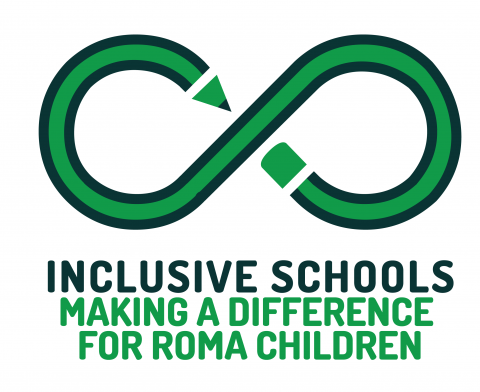INSCHOOL – New project of the European Commission and Council of Europe on inclusive education for Roma children
The European Commission and Council of Europe are initiating a new joint project on “Inclusive schools: making a difference for Roma children” targeting schools where Roma children learn, in the Czech Republic, Hungary, Romania, Slovak Republic and United Kingdom.
The starting point of the project “Inclusive schools: making a difference for Roma children” is based on the main assumption that it is not enough to draw up policies of change. Change needs to be reflected at school level and in the environment of the children and there is often a gap between the statements and requirements in policy documents and the reality in which these need to be implemented. Practise has proven that for schools to overcome the rift of exclusive teaching and learning approaches, they have to re-examine what they teach, how they teach and how they assess learners’ performances. A real link with the non-formal education and the support for families and communities is necessary to create a shift in education - for the benefit of all learners.
Instead of focusing on the child as the problem, INSCHOOL puts at the heart of its action the education system and its capacity to respond to the needs of Roma children, to celebrate differences and support their learning experience.
How will it work?
The main activities under this project will focus on two levels. The first level will be pilot schools, with the aim to increase the understanding for the benefits of inclusive education. Within each country, the programme will target up to 4 schools in different municipalities, and will include one additional school with proven know-how in inclusive education practices per country as “national support school”. The second level of intervention will target policy review and adaptation.
The project thus consists of four interlinked intermediate outcomes:
- Setting up support mechanisms and resources for pilot inclusive schools;
- Provision of support to teachers to practice inclusive teaching;
- Supporting the removal of concrete barriers for vulnerable groups including through changes of legislation in the targeted countries;
- Raising awareness of the benefits of inclusive education for the general public as well as decision makers;
At the beginning of the project, the initial criteria for selection of pilot schools will be developed in consultation with Ministries of Education from each country.
Desired impact
By the end of the project (December 2018), teachers will acquire new skills that will enable them to manage their class despite the diverse learning needs, they will be able to practice multi-level teaching methods that enable them to identify barriers the child is experiencing, teaching in a way that includes all these learners accommodating the different needs and learning styles. Staff will be confident and better equipped, through the effective training they will have received.
Children experiencing barriers to learning, instead of being prescribed to a “special school” which might be far away from their home or being left out of the school, will be enrolled and/or full part of the school within their neighborhood.
With well-functioning structures such as well-informed and trained teachers, adequate out-of-school activities and non-formal education support for children, targeted support measures for vulnerable children and families, etc. the school governance ensures the whole school community is developed to teach learners in a way that brings the best out of them. Overall school performance is improved as learners are learning in an environment that takes their needs into account.
*Inclusive education (ie), as defined in the Salamanca statement promotes the “recognition of the need to work towards ‘schools for all’/institutions which include everybody, celebrate differences, support learning, and respond to individual needs”.

